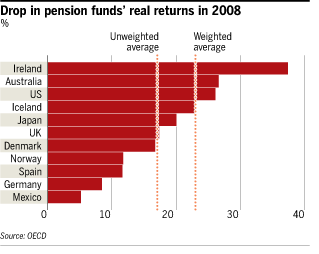Overextended Pension Funds?

A follow-up on my last comment where I criticized the Financial Post article, Bonus flap puts Canada Pension's strategy at risk . While it is true that paying hefty fees to external managers costs large pension funds hundreds of millions, the article makes it seem as if CPPIB is sourcing their own PE deals and they can compete with the top private equity GPs out there. That is simply not the case. What typically happens is that they co-invest with some of the top PE funds and stick in a big chunk of change. They use their size to write the big cheques and they then ask for reduced fees. [ Note: Pure direct investments are typically money-losing operations at large pension funds.] It doesn't take that much talent to dangle a big fat cheque in front of some hedge fund or private equity manager and then persuade them to reduce their fees. In fact, it is a lot harder to find lesser known PE players in the mid-market who are performing well. And the example of CalPERS is terrible be...






